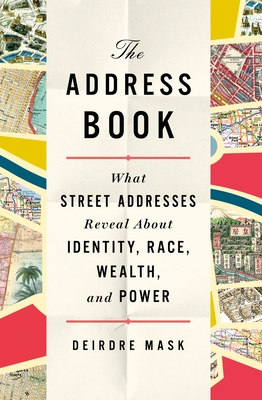The Address Book Book Summary
What Street Addresses Reveal About Identity, Race, Wealth, and Power
TL;DR
In 'The Address Book,' Deirdre Mask explores how street addresses shape social identity, revealing connections between location, race, wealth, and power while examining the implications for those lacking formal addresses.
What is The Address Book about
Deirdre Mask’s 'The Address Book: What Street Addresses Reveal About Identity, Race, Wealth, and Power' delves into the significance of street addresses beyond mere navigation. The book posits that addresses are key to understanding societal structures, as they often reflect deeper issues of identity, class, and race. Mask investigates the history and meaning of street names, highlighting examples from various contexts—including streets named after Martin Luther King Jr. and the implications of living without an address. The author intertwines personal narratives and historical accounts to illustrate how addresses are not simply physical markers but powerful tools that can marginalize or empower individuals based on their location.
The Address Book 8 Key Takeaways
Addresses as Identity Markers
Street addresses can indicate a person's race and class, revealing societal structures that influence individuals' lives based on where they live.
Historical Context of Street Naming
The history of street names, such as those dedicated to civil rights figures, provides insight into cultural values and societal changes over time.
Access to Addresses and Rights
In places like Kolkata, formalizing street addresses is crucial for the residents' rights, affecting their access to services and security.
Power of Naming
The act of naming streets has profound implications, as it can decide who is remembered or forgotten in a community's narrative.
Addressing Inequality
The lack of formal addresses for many individuals, especially in slums, highlights global issues of inequality and the struggle for recognition.
Cultural Reflections in Addressing
Different cultures approach the concept of addressing in varied ways, revealing how deeply entwined it is with identity and belonging.
Implications of Address Loss
Not having a permanent address leads to significant social and economic challenges, emphasizing the critical nature of this basic civic element.
Comparative Global Perspectives
The book offers a global perspective by comparing different societies' approaches to street naming and addressing, showcasing the universal importance of location.
Top The Address Book Quotes
- "Addresses are not just physical locations; they represent who we are and how society sees us."
- "To have an address is to be counted; to lack one is to exist in the shadows of society."
Who should read The Address Book?
This book is ideal for readers interested in social justice, urban studies, and history. It provides valuable insights into how location impacts identity and access to resources, inspiring readers to consider the broader implications of addressing systems in their own communities.
The Address Book Best Reviews
- "A thought-provoking examination of the unseen impacts of addresses on identity and society, Mask's writing is both engaging and enlightening." - The New York Times
- "Mask masterfully weaves historical anecdotes with contemporary issues, making a compelling case for why we must consider the power of place." - The Guardian
